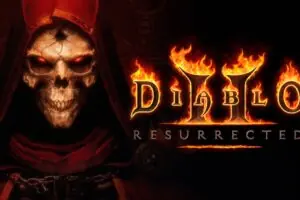Devil’s Hunt came to Steam on September 17, 2019, and received an underwhelming critical response for the hack and slash gameplay that it wanted to accurately convey. Made by a Polish development studio named Layopi Games, they consistently struggled to fix glaring issues with hit detection, audio playback, optimization, and crashing to desktop. Despite all of its issues, however, it maintained 51% recommended on Steam out of a total of 135 reviews, officially making it a stronger release than Blizzard’s Warcraft 3: Reforged.
Unfortunately, humor won’t make a title take off. Layopi Games has officially closed, meaning Devil’s Hunt will never be brought to the fruition that many were hoping for from the title.
This cancels their plans of the Nintendo Switch, Xbox One, and PlayStation 4 port that Devil’s Hunt was slated to arrive at.
While tremendously unfortunate, indie studios closing is a common occurrence. Occasionally, a first title simply doesn’t have enough going for it to result in a grassroots audience that can safely carry the studio towards more ambitious projects in the future. What isn’t common, however, is precisely how Layopi Games went about informing their staff that the studio is dead. Polish outlet ‘ppe.pl’ spoke at length to many of the developers of Layopi Games about how the final hours came about, and the responses were disgusting, at best.
Management never let any of the staff know that the company was folding, instead having them work for three additional months without receiving any pay, with promises of pay on the horizon. This means that the most recent patch, Devil’s Hunt 1.05 (the only patch the game received, ultimately) and the trading cards available on Steam were all the result of unpaid work by developers desperate to make a name for themselves.
Last Friday, the staff alleges, the developers came into work at an empty office. Everything had been removed, and employees were to receive their belongings from the trash, sorting through refuse to find prized items that they had brought to work. There were no warnings, no emails, or any notes in regards to what could be on the horizon; instead, employees were only fed empty promises as they struggled to make ends meet for their families.
The boss turned off the company email as unceremoniously as everything else, and employees \simply had nowhere to turn to. Salary, benefits, and even recommendations, so they could secure a future job, were all lost instantly.
The gaming industry, as a whole, is rightfully seething at the idea of a development studio taking the rug from under its employee’s feet. Many families are left with no financial recourse aside from government programs, while the management is likely to continue their tomfoolery elsewhere.





